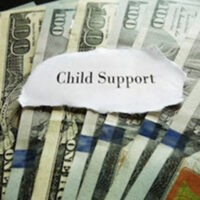Can You Lower Child Support if the Coronavirus Crisis Affected Your Ability to Pay?

Many individuals and families are already experiencing the economic burden caused by the coronavirus crisis. For divorced persons, the obligations to pay child support and/or alimony may be unbearable, especially for those who were furloughed or laid off during the COVID-19 pandemic.
Naturally, the parent who was obliged to pay child support but is experiencing financial issues during the pandemic may wonder, “Can I lower the amount of support if the crisis affected my ability to make payments?”
Indeed, many family law attorneys in Florida and across the country have seen a surge in questions about modifications of the child and spousal support agreements.
Coronavirus-Related Unemployment and Your Ability to Pay Child Support
With skyrocketing unemployment in Florida during the pandemic – since March 15, more than 1.8 million Floridians filed unemployment claims – married and divorced people have been exploring ways to reduce their bills. While you may be able to tighten your belt during the coronavirus crisis, it is not that easy to reduce your child support or alimony payments or terminate them altogether.
Both child and spousal support obligations are determined based on the parties’ income and assets at the time of divorce. These obligations can exist for years or decades and, typically, they cannot be modified or terminated unless there has been a substantial change in the circumstances (e.g., a material change in the payor parent’s income).
Can You Modify Child Support During the COVID-19 Pandemic?
With court system closures, reducing your child support during the COVID-19 pandemic might be challenging. The Florida Supreme Court restricted in-person proceedings and suspended jury trials through July 02, 2020.
Given that the situation surrounding the pandemic continues to evolve, you should reach out to your Orlando child support attorney to determine whether you can file a modification request and, if not, what your alternative options are.
Also, consider contacting the custodial parent, who is receiving your child support payments, either directly or through a lawyer to explain your predicament and work out a mutually-beneficial plan during these unprecedented times.
Do not just stop paying child support all of a sudden without talking to your ex. Otherwise, your failure to pay may be considered as contempt of court.
You May Still Have to Pay Child Support During the Pandemic
Those who are struggling to make timely child support payments during the coronavirus crisis need to understand that their obligations continue to accrue at the ordered amount unless the court issued an order to modify the obligation or the parties have a written agreement to reduce or terminate the obligation.
Also, keep in mind that Florida judges do not review only your employment status and income when evaluating your ability to pay child support. The court also looks at your assets. If you have filed for unemployment benefits during the pandemic, keep in mind that those benefits will count as your income. In other words, not only will your unemployment benefits be subject to taxes, but will also be considered when determining your ability to make child support payments.
Speak with our Orlando family attorneys at Greater Orlando Family Law to discuss your ability to lower child support during the COVID-19 pandemic. Request a consultation by calling at 407-377-6399.
Resource:
tampabay.com/news/health/2020/04/24/floridas-unemployment-site-is-down-until-monday-workers-protest-online/
https://www.orlandolegal.com/can-adultery-impact-your-alimony-award-in-florida/
